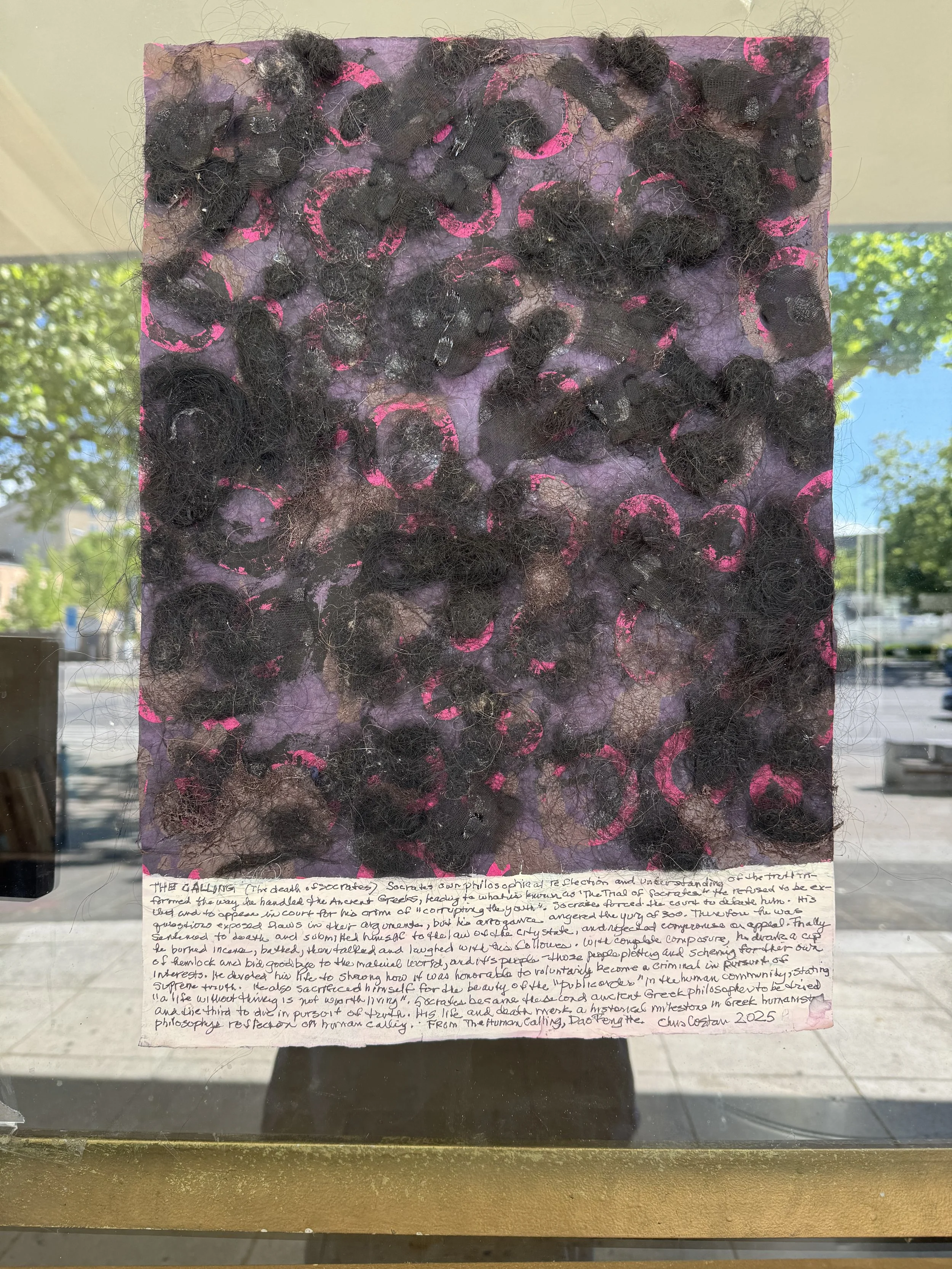Truth as a Calling (The Death of Socrates)
"Socrates' own philosophical reflection and understanding of the truth informed the way he handled the ancient Greeks and led to what is known as the “Trial of Socrates.” He challenged the accusation that he was “corrupting the youth” because he spoke the truth to his young followers. He refused to appear and/or to settle with the court to be tried Instead, Socrates challenged the court to a debate . His questions showed the flaws in their argument, and his arrogant attitude angered the jury of 300,. Ultimately, he was sentenced to death and he seemed satisfied with the verdict. He chose to submit himself to the law of his city-state to not resist and rejected any kind of compromise or appeal. Finally, he burned incense and bathed, talked and laughed with his followers. Then he drank a cup of hemlock with complete composure and bid goodbye to the material world, and its people—always scheming and plotting for their own interests. He devoted his life to showing how it was honorable to voluntarily become a "criminal"in pursuit of supreme truth. He also sacrificed himself for the beauty of the public order in the human community, with this final dispatch on human calling: “a life without thinking is not worth living.” Socrates became the second ancient Greek philosopher, to be tried and the third ancient Greek philosopher, after Zeno and Empedocles, to die in pursuit of truth. His life and death mark a historical milestone in Greek humanistic philosophy’s reflection on human calling."
from The Human Calling Dao Feng He
Berlin (Columbiahalle), 2025
materials: acrylic paint, human hair, ink, rag paper (24 X 18 inches)



